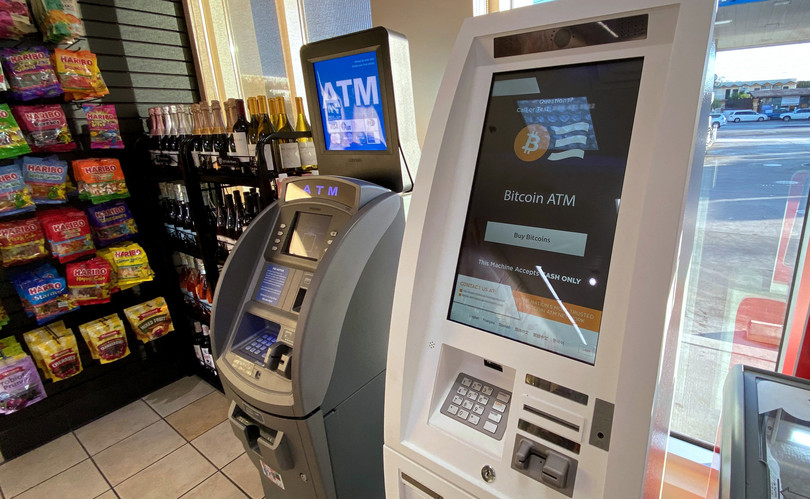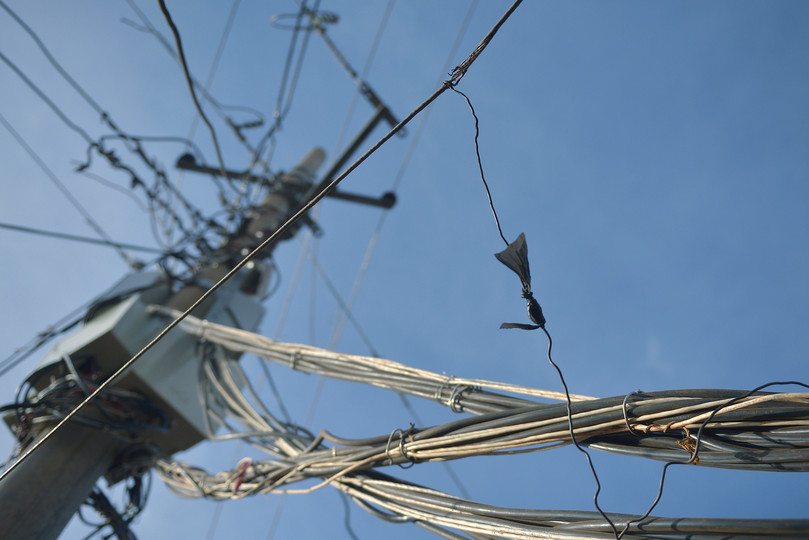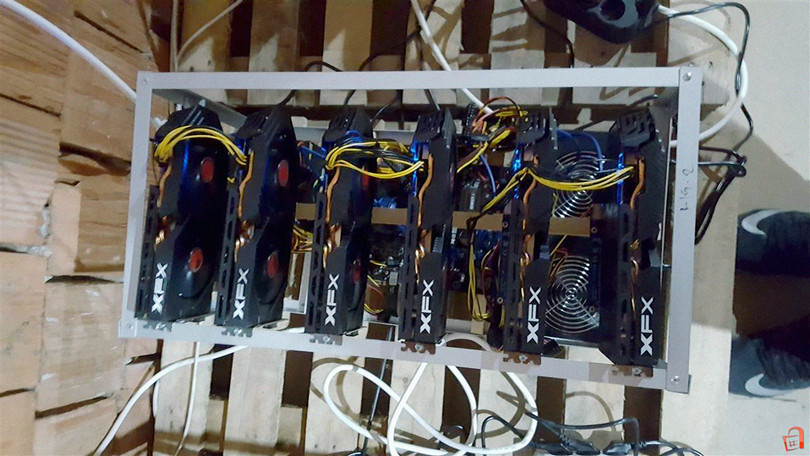Use of cryptocurrencies is gaining traction in the region.
There is much hype and debate about the potential of digital cryptocurrency, with the price of Bitcoin reaching record highs of over €55 000 per unit. El Salvador has even adopted Bitcoin as an official currency, the first country to do so. In the Western Balkans, although the level of cryptocurrency use is relatively low, it is slowly increasing in the region. This brings new opportunities but it can also create new risks, since cryptocurrencies are used by criminals to move and launder money. This article looks at how cryptocurrencies work and the risk that they pose to the region, particularly in relation to illicit financial flows.
Open financial system or Ponzi scheme?
Cryptocurrencies are web-based, peer-to-peer payment systems that rely on cryptography. They function as ‘a digital unit of exchange that is not backed by a government-issued legal tender.’1 They are computer files tendered as a form of payment for real goods and services. Cryptocurrencies work using blockchain, a digital ledger of transactions that is duplicated and distributed across the entire network of system users. Each block in the chain contains a number of transactions, and every time a new transaction occurs, a record of that transaction is added to every participant’s ledger.
Proponents regard virtual currencies as the wave of the future for payment systems. They praise the speed and simplicity of making transactions, freedom from intermediaries like banks and the transparency of blockchain, which can reduce the chance of fraud and tampering.2
Critics argue that cryptocurrencies are based on speculation more than real value. As one analyst in North Macedonia put it: ‘Cryptocurrencies are imaginary money … There is no world economy behind them.’ He warned that the value of cryptocurrencies is not subject to regulation by monetary authorities and that they are vulnerable to financial speculation.3 Some have even called them a gimmick and a Ponzi scheme.4
Another widespread and often-heard criticism is that anonymity and weak regulation enable criminals to use cryptocurrencies to move and store illicit funds and tax evaders to avoid detection, out of the reach of law enforcement and regulators.
Critics also point to the negative environmental impact of cryptocurrencies.5 Not only is cryptomining energy intensive, but also mining equipment and computer chips used for Bitcoin mining usually have a short lifespan. Furthermore, Bitcoin transactions require a great deal of energy and generate electronic waste.6

A Bitcoin ATM next to a regular ATM at a petrol station.
Photo: Chris Delmas/AFP via Getty Images
Limited use and low regulation in the Western Balkans
The roll-out of cryptocurrencies in the Western Balkans has been relatively slow compared to other parts of Europe. A heatmap produced by Coinmap, a website that displays venues around the world that accept cryptocurrency payments, shows that there are few cryptocurrency exchanges or ATMs in the Western Balkans, except in big cities and along the Montenegrin coast.7
As with cash, cryptocurrencies can be accessed from ATMs. As the price and popularity of cryptocurrencies surge, the number of cryptocurrency ATMs is soaring. There are now almost 29 000 such machines worldwide.8 But very few of them are in the Western Balkans. According to one source, there are five cryptocurrency ATMs installed in Serbia (one in Nis and two each in Belgrade and Novi Sad), four in Kosovo (all in Pristina) and six in Bosnia and Herzegovina (three each in Banja Luka and Prijedor). Officially, there are none in North Macedonia, Albania or Montenegro.9 Although it looks similar to a regular ATM, a Bitcoin ATM is not connected to a bank account, but rather to a cryptocurrency exchange. Customers are able to access their digital wallet to buy and sell virtual assets.
People are also increasingly paying for goods and services using cryptocurrencies, for example in coffee bars, restaurants, hotels and hospitals where this option is available. It is even possible to rent a yacht in Montenegro using cryptocurrencies.10 A business that receives more than €10 000 in cash from a customer must file a currency transaction report. But the same rules do not apply to cryptocurrency. A used-car business that receives €20 000 in Bitcoin from a customer does not have to file a currency trans-action report; that income may also go untaxed if it is unreported on the business owner’s tax return. This is not a hypothetical situation: three luxury apartments in Budva, Montenegro, sold for 420 bitcoins (US$3.2 million), while a local investment association is promoting the use of digital currencies in hotels and resorts in this popular tourist destination.11
The introduction of this technology has been faster than the adoption of legislation to regulate it. Some countries in the region, like Bosnia and Herzegovina and Kosovo, have not adopted laws on cryptocurrency trading or regulation of cryptocurrency ATMs. And yet the machines are not illegal. This creates a grey area that is being exploited.
Serbia and Albania, on the other hand, are among the first countries in the world to create a clear framework and legal security for investors and users of digital assets.12 Other countries in the region have created working groups tasked with drafting legal frameworks.13
Online, off the books
Although cryptocurrency and cryptomining are legal, digital money is a new domain for money laundering by corrupt officials, businesspeople or criminal groups. Since much of the illicit activity in the Western Balkans is transnational, criminal groups need ways to move the money generated by the trafficking of drugs, weapons and people.
Furthermore, many criminal groups from the Western Balkans operate outside the region; cryptocurrency therefore enables them to move money quickly and anonymously across borders, including back into the Western Balkans. Where regulation is weak, cryptocurrencies are a good way to bring illegal proceeds into the financial system since they are a highly moveable asset.
As with cash-based money laundering, there are three main stages to laundering money using a cryptocurrency:
- Placement: Illicit funds are brought into the financial system, for example through cryptocurrency exchanges or ATMs.
- Layering: In this stage, criminals obscure the illegal source of funds, for example converting one cryptocurrency into another or taking part in an initial coin offering.
- Integration: Illegal money is then put back into the licit economy as ‘clean’, for example by cashing out cryptocurrency through ATMs or over-the-counter brokers who get a high commission.
In countries with weak regulation or enforcement of know-your-customer rules, ATMs themselves can be a portal for laundering money. For example, they can allow people to purchase Bitcoin via credit or debit cards or in some cases by depositing cash or trading cryptocurrency for cash. For a fee, unscrupulous owners may allow drug traffickers or other criminal groups to deposit large amounts of cash into the virtual currency machines and hide the origin of the funds.
Cryptocurrency exchanges enable clients to convert hard currency into crypto-assets and vice versa. This creates liquidity in cryptocurrency markets. It also means that such exchanges are key gateways for crypto-asset-related money laundering. Criminals deliberately seek out exchanges where there is low risk to move their money between fiat and crypto-assets, or from one crypto-asset to another. In a space that is thus far under-regulated, criminals look for unlicensed and non-compliant exchanges that do not enforce know-your-customer or customer due diligence rules. Criminals also take advantage of decentralized exchange services (like the Ethereum network) to lend or borrow money, bypass compliance controls and take advantage of the fact that such systems lack a central administrator with active oversight of user accounts, records, identities or activities. Online gambling sites that accept payments in cryptocurrency enable criminals to purchase chips with crypto-assets and cash them out after a few transactions.
Furthermore, peer-to-peer cryptocurrency networks enable criminals to move money, for example to jurisdictions where there are less stringent anti-money laundering regulations. Such networks also help criminals to access exchanges or brokers that can convert crypto-assets into fiat money. The technology also raises obstacles – both technical and legal – on seizing and recovering cryptocurrency assets. This is an area that lawyers and law enforcement practitioners are grappling with.
Cryptocurrency platforms are also being used to commit fraud.14 In an April 2021 fraud case, Turkish officials appealed to Albanian colleagues to help track down a fugitive trader who is alleged to have fled to Tirana with US$2 billion in digital assets belonging to 700 000 people.15 In addition to such inside jobs, there is the danger of crime against a decentralized finance protocol (cryptocurrency platforms) by outsiders through hacks or ransomware attacks.
Digital diggers: Cryptomining in the Western Balkans
Although cryptocurrencies are slowing becoming more popular and more common in the Western Balkans, some parts of the region, like northern Kosovo and a few municipalities in North Macedonia, are active centres of cryptomining, that is, gaining cryptocurrencies by solving cryptographic equations through the use of computers, which requires huge amounts of equipment and electricity.
Taking advantage of their unclear legal status since Kosovo’s declaration of independence in 2008, Serbs in northern Kosovo – in the municipalities of Leposavic, Mitrovica, Zubin Potok and Zvecan – have not paid an electricity bill in more than two decades. Attics, basements, garages and even whole houses – often charging high rent – have been converted for cryptomining. In the process, around €12 million worth of energy is being consumed for free every year. It has been reported that cryptocurrency production in this small area, with an estimated population of fewer than 50 000 people, consumes 32 terawatt-hours of electricity per year, almost as much as all of Denmark.16

A wire denoted by a piece of polythene tied around it is used to make an illegal connection.
Photo: Tony karumba/AFP via Getty Images
Cryptomining is also becoming common in North Macedonia, for example in Skopje, Tetovo and Aracinovo. Electric companies are noticing much higher than normal energy consumption in some parts of these cities. Cryptomining is legal and it can be lucrative: profits are usually two to three times the cost of the investment in rent, mining rigs and electricity.17 What is illegal is making an illicit connection to the electricity network in order to steal the power needed to mine cryptocurrencies. This has been reported in the above-mentioned cities in North Macedonia. The problem has also been reported elsewhere. In August 2021, electricity theft was reported at the former Kruna water-bottling factory close to Banja Luka in Bosnia and Herzegovina; 360 computers involved in cryptomining were discovered on the site and charges were filed for unauthorized electricity consumption.18
One of the side effects of cryptomining is power outages caused by overloading the electricity distribution network. According to a representative of a local power company, ‘one household, if it installs computers for mining cryptocurrencies … can consume energy for 20 or 30 households, which disrupts the power supply to all neighbouring users at that power point’.19 In the first half of 2021, 120 charges were filed for theft of electricity in North Macedonia; in 2020, 250 charges were made for the unauthorized use of electricity.20
In conclusion, e-commerce is clearly the wave of the future. Although the use of cryptocurrencies in the Western Balkans is currently limited and the extent to which they are already used to launder money and avoid taxes remains difficult to measure, it is clear that cryptocurrencies are attracting a lot of attention. The challenge for countries in the region is to put in place a robust regulatory framework and ensure that law enforcement and regulators have the tools and capacity to follow cryptocurrencies, reduce the risk of money laundering and to equip financial intelligence experts with the know-how to prevent cryptocurrencies from being exploited for organized crime and corruption.

A Bitcoin mining rig for sale online in North Macedonia.
Photo: Pazar3
Notes
-
Government Accountability Office, Virtual economies and currencies: Additional IRS guidance could reduce tax compliance risks (GAO-13-516), Report to the U.S. Senate Committee on Finance, 15 May 2013, www.gao.gov/assets/gao-13-516.pdf. ↩
-
Brian Armstrong, Cryptocurrencies’ Time to Shine?, Project Syndicate, 8 April 2020, www.project-syndicate.org/commentary/rise-of-cryptocurrencies-after-covid19-pandemic-by-brian-armstrong-2-2020-04. ↩
-
Kripto-valuti: Od zelba za brza zaraboptuvacka do kolaps, NOVA TV, 20 February 2018, novatv.mk/kripto-valuti-od-zhelba-za-brza-zarabotuvachka-do-kolaps/. ↩
-
Kevin Stankiewicz, ‘Black Swan’ author calls bitcoin a ‘gimmick’ and a ‘game,’ says it resembles a Ponzi scheme, CNBC, 23 April 2021, www.cnbc.com/2021/04/23/bitcoin-a-gimmick-and-resembles-a-ponzi-scheme-black-swan-author-.html. ↩
-
Bojan Stojkovski, Ditching dinars: Will the Balkans take to Cryptocurrency?, BalkanInsight, 17 September 2020, balkaninsight.com/2020/09/17/ditching-dinars-will-the-balkans-take-to-cryptocurrency. ↩
-
Cryptocurrencies and damage from electronic waste, Vrabotuvanje.com, 20 September 2021, www.vrabotuvanje.com.mk/Sovet/12417/Kriptovaluti-i-shtetite-od-elektronskiot-otpad/7. ↩
-
See https://coinmap.org/view/#/world/47.19717795/17.24853516/6. ↩
-
For a Bitcoin ATM map, see: coinatmradar.com. ↩
-
Bitcoin ATMs by country are available here: https://coinatmradar.com/countries. ↩
-
Business Wire, Royal yacht brokers to accept cryptocurrencies and gold as payment for luxury yacht rental services, 28 October 2017, https://www.businesswire.com/news/home/20171028005014/en/Royal-Yacht-Brokers-Accept-Cryptocurrencies-Gold-Payment. ↩
-
Jamie Redman, Three luxury apartments sold for 420 BTC in the coastal region of Montenegro, Bitcoin.com, 8 June 2018, news.bitcoin.com/three-luxury-apartments-sold-for-420-btc-in-the-coastal-region-of-montenegro. ↩
-
Law on Digital Assets, Republik of Srpska Official Gazette, No 153/2020, www.nbs.rs/export/sites/NBS_site/documents-eng/propisi/zakoni/digitalna_imovina_e.pdf; Law No. 66/2020 on financial markets based on distributed ledger technology, Parliament of the Republic of Albania, amf.gov.al/pdf/ligje/LawNo_66_2020ONFINANCIALMARKETSBASEDONDISTRIBUTEDLEDGERTECHNOLOGY.pdf. ↩
-
Interviews with representatives of the Financial Intelligence Offices of Bosnia and Herzegovina, Kosovo, North Macedonia and Montenegro, 1 October 2021. ↩
-
Two charged, one wanted on cryptocurrency fraud in Albania, Exit News, 26 June 2021, exit.al/en/2021/06/26/two-charged-one-wanted-on-cryptocurrency-fraud-in-albania. ↩
-
Hamdi Firat Buyuk, Turkey asks Albania to detain fugitive cryptocurrency fraud suspect, BalkanInsight, 23 April 2021, balkaninsight.com/2021/04/23/turkey-asks-albania-to-detain-fugitive-cryptocurrency-fraud-suspect. ↩
-
Arbesa Hoxha-Dobrunaj, Smuggling, cryptocurrencies and illegal mining in northern Kosovo, Robert Lansing Institute for Global Threats and Democracies Studies, 19 May 2021, lansinginstitute.org/2021/05/19/smuggling-cryptocurrencies-and-illegal-mining-in-northern-kosovo. ↩
-
Adelina Ahmeti and Kreshnik Gashi, Crypto mining machines confiscated by Kosovo authorities in Pristina, BalkanInsight, 12 May 2021, balkaninsight.com/2021/05/12/in-north-kosovo-mining-for-bitcoin-on-free-electricity. ↩
-
Dejan Tovilović, U Damjanovićevoj „Kruni“ kradu struju za rudarenje kriptovaluta, Capital, 14 October 2021, www.capital.ba/u-damjanovicevoj-kruni-kradu-struju-za-rudarenje-kriptovaluta. ↩
-
Tose Ognjanov, Некои со легални влогови, а некои и со крадење струја: Сè повеќе македонски граѓани „копаат“ криптовалути, VOA, 10 June 2021, mk.voanews.com/a/voa-crypto-currency-mkd-article-toshe-ognjanov/5923962.html. ↩
-
Aleksandra Filipovska, Лесна заработувачка со копање на биткоини- однесе во полициска станица жител на Ѓорче Петров, Telma, 17 July 2021, telma.com.mk/2021/07/17/лесна-заработувачка-со-копање-на-битк. ↩
